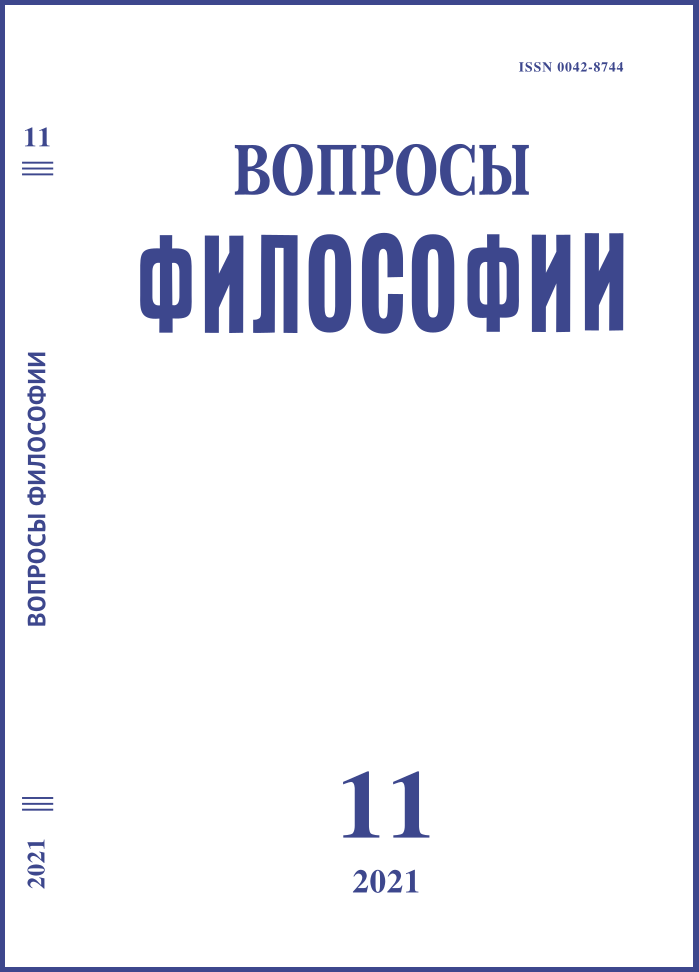About the mind. Going back to Nicholas of Cusa
DOI:
https://doi.org/10.21146/0042-8744-2021-11-167-176Keywords:
mind, beginning, identity of being and thinking, logical circle, universal form, truth, reflection, creativity, pantheism.Abstract
The article expresses the internal connection between the historical culture of philosophical thinking and the modern understanding of the thinking ability. Since antiquity, thinking has understood itself as a form of comprehending a thing from its own nature. The immersion of this problem in the diverse subject material of today’s reality, more than ever, makes it timely to present this problem in its universal form – in order to give a theoretical basis for a reasonable attitude to reality. Philosophy is looking for the absolute foundations of being, and therefore, at every stage of its development, it somehow comes into contact with the absolute form of its thinking. The moments of contact between the absolute content of being and the absolute form of the thinking ability are therefore of lasting value. The genesis of thinking activity within real being and its reversal in consciousness is always and everywhere (for any science) a meaning-forming matter. The article presents the research of the logical beginning in the understanding of the mind and justifies the need to reach the principle of the identity of being and thinking. It is shown that the classical line in the history of philosophy is fundamentally relevant in the modern understanding of the problem of thinking. This fundamental significance logically strictly outlines the boundaries of the system analysis, without which philosophical science sinks into empirical material and loses the classical philosophical and logical inner validity of its thinking. The justification of this circumstance finds its support in the historical philosophical tradition. Therefore, in the article, the analysis of the concept of mind as the potency of thinking is combined with some analyses of this ability by Nikolai Kuzansky.

